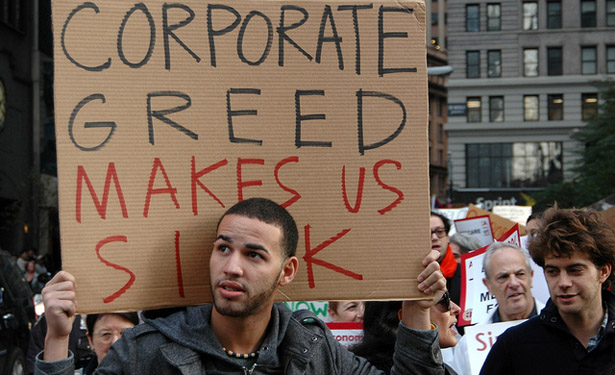
In 2009, epidemiologists Kate Pickett and Richard Wilkinson published an influential book entitled The Spirit Level: Why Greater Equality Makes Societies Stronger, which sought to demonstrate that inequality has negative impacts on all segments of society, even those at the top of the financial ladder. They’ve just returned with a new book called The Inner Level: How More Equal Societies Reduce Stress, Restore Sanity and Improve Everyone’s Wellbeing. It focuses on the mental health benefits of equality, and conversely, the mental health costs of inequality. At Open Democracy, they have an essay that summarizes some of the central points of their new book and challenges some of the most common arguments in defense of inequality. Here’s an excerpt:
In our new book, The Inner Level, we bring together a robust body of evidence that shows we were on the right track: inequality eats into the heart of our immediate, personal world, and the vast majority of the population are affected by the ways in which inequality becomes the enemy between us. What gets between us and other people are all the things that make us feel ill at ease with one another, worried about how others see us, and shy and awkward in company—in short, all our social anxieties.
For some people, these anxieties become so severe that social contact becomes an ordeal and they withdraw from social life. Others continue to participate in social life but are beset by the constant worry that they have no small talk or come across as boring, stupid or unattractive. Sadly, we all tend to feel that these anxieties are our own personal psychological weaknesses and that we need to hide them from others or seek therapy or treatment to try to overcome them by ourselves.
But a recent Mental Health Foundation Survey found that 74 percent of adults in the UK were so stressed at times in the past year that they felt overwhelmed and unable to cope. One-third had suicidal thoughts and 16 percent had self-harmed sometime in their lives. The figures were much higher for young people. In the USA, mortality rates are rising, particularly for white middle-aged men and women, due to ‘despair’, meaning deaths due to drug and alcohol addictions, suicide, and vehicle accidents. An epidemic of distress seems to be gripping some of the richest nations in the world.
Image via The Atlantic.